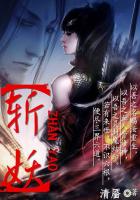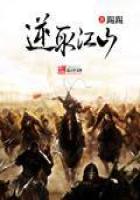Perhaps the most world-amazing achievement of his was the assassination of the King and Queen of Portugal. It was their wedding day. All possible precautions had been taken against the terrorists, and the way from the cathedral, through Lisbon's streets, was double-banked with troops, while a squad of two hundred mounted troopers surrounded the carriage. Suddenly the amazing thing happened. The automatic rifles of the troopers began to go off, as well as the rifles, in the immediate vicinity, of the double-banked infantry. In the excitement the muzzles of the exploding rifles were turned in all directions. The slaughter was terrible - horses, troops, spectators, and the King and Queen, were riddled with bullets. To complicate the affair, in different parts of the crowd behind the foot-soldiers, two terrorists had bombs explode on their persons. These bombs they had intended to throw if they got the opportunity. But who was to know this? The frightful havoc wrought by the bursting bombs but added to the confusion; it was considered part of the general attack.
One puzzling thing that could not be explained away was the conduct of the troopers with their exploding rifles. It seemed impossible that they should be in the plot, yet there were the hundreds their flying bullets had slain, including the King and Queen. On the other hand, more baffling than ever was the fact that seventy per cent. of the troopers themselves had been killed or wounded. Some explained this on the ground that the loyal foot-soldiers, witnessing the attack on the royal carriage, had opened fire on the traitors. Yet not one bit of evidence to verify this could be drawn from the survivors, though many were put to the torture. They contended stubbornly that they had not discharged their rifles at all, but that their rifles had discharged themselves. They were laughed at by the chemists, who held that, while it was just barely probable that a single cartridge, charged with the new smokeless powder, might spontaneously explode, it was beyond all probability and possibility for all the cartridges in a given area, so charged, spontaneously to explode. And so, in the end,no explanation of the amazing occurrence was reached. The general opinion of the rest of the world was that the whole affair was a blind panic of the feverish Latins, precipitated, it was true, by the bursting of two terrorist bombs; and in this connection was recalled the laughable encounter of long years before between the Russian fleet and the English fishing boats.
And Emil Gluck chuckled and went his way. He knew. But how was the world to know? He had stumbled upon the secret in his old electroplating shop on Telegraph Avenue in the city of Oakland. It happened, at that time, that a wireless telegraph station was established by the Thurston Power Company close to his shop. In a short time his electroplating vat was put out of order. The vat- wiring had many bad joints, and, on investigation, Gluck discovered minute welds at the joints in the wiring. These, by lowering the resistance, had caused an excessive current to pass through the solution, "boiling" it and spoiling the work. But what had caused the welds? was the question in Gluck's mind. His reasoning was simple. Before the establishment of the wireless station, the vat had worked well. Not until after the establishment of the wireless station had the vat been ruined. Therefore the wireless station had been the cause. But how? He quickly answered the question. If an electric discharge was capable of operating a coherer across three thousand miles of ocean, then, certainly, the electric discharges from the wireless station four hundred feet away could produce coherer effects on the bad joints in the vat-wiring.
Gluck thought no more about it at the time. He merely re-wired his vat and went on electroplating. But afterwards, in prison, he remembered the incident, and like a flash there came into his mind the full significance of it. He saw in it the silent, secret weapon with which to revenge himself on the world. His great discovery, which died with him, was control over the direction and scope of the electric discharge. At the time, this was the unsolved problem of wireless telegraphy - as it still is to-day - but Emil Gluck, in his prison cell, mastered it. And, when he was released, he applied it. It was fairly simple, given the directing power that was his, to introduce a spark into the powder-magazines of a fort, abattleship, or a revolver. And not alone could he thus explode powder at a distance, but he could ignite conflagrations. The great Boston fire was started by him - quite by accident, however, as he stated in his confession, adding that it was a pleasing accident and that he had never had any reason to regret it.















